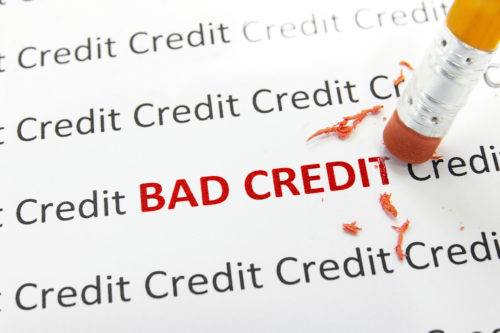
Credit scores are an important measure of your financial health. A high credit score signifies that you’re reliable and more likely to pay your bills on time. So if you’re looking to buy a home, apply for a new credit card, purchase a car, or rent an apartment in the near future, it’s probably something that should be on your radar.
Still, many people are unaware of the factors that help to determine your credit score, and what makes your credit favorable or unfavorable in the eyes of the lender. Below, we highlight what makes credit good, what makes credit bad, and steps you can take in order to improve your score in the eyes of lenders.
Table of Contents
What is an Average Credit Score?
The average credit score for Americans has been ticking up over the past few years, hitting a record 700 in 2017 according to data compiled by the Times. This typically varies by age, and generally improves over time.
According to their analysis, there is a large generational gap that affects credit scores in particular.
“There is a 91-point difference between the average scores of those in the oldest bracket of consumers and those in the youngest group, according to a new analysis that FICO performed for MONEY,” financial expert Kaitlin Mulhere writes. “With each decade, the average score increases by about 20 points.”
What Is Bad, Poor, and Fair Credit?
There are a number of ways that creditors choose to evaluate your credit. Financial institutions that evaluate your ability to pay back your debts look at various factors, so it’s likely that you have hundreds of credit scores.
“All credit scores use the same information from your credit report, but they treat the information slightly differently to meet the needs of the particular lender,” according to Experian.
Although there are nuances when it comes to your credit score, most lenders operate on the FICO model, which ranks borrowers on a scale from 300-850.
According to the FICO scale, lenders are much more likely to lend to and provide favorable terms to those with credit scores over 670, which is considered a good credit score. Those with fair credit tend to fall in the 580-669 range, while those with poor credit have a score of 579 or lower.
What Contributes to a Bad Credit Score?
There are a number of factors that come into play when financial institutions evaluate your credit score. The two that are most key, however, are your payment history and utilization.
“There are many—in fact, hundreds—of credit scores that lenders use to help make lending decisions,” note the experts at Experian. “But in almost all credit scores, the two factors that affect your credit scores the most are your payment history and credit utilization rate. There are other factors—such as length of credit (this is how long your accounts have been open).”
In order to have a good credit score, it’s vital that you make your payments in a timely manner, and recommended that you keep your credit utilization as low as possible.
How Can I Raise My Credit Score?
When evaluating your credit score, financial institutions are looking for individuals that meet key criteria. If you’re looking to make a big purchase in the near future, you might be hoping to raise your credit score in order to secure a better interest rate.
“Certain credit score factors are more important than others,” write the credit experts at Experian. “Payment history and credit utilization ratios are among the most important in many critical credit scoring models, and together they can represent up to 70% of a credit score, which means they’re hugely influential.”
If you’re hoping to raise your credit score, there are a number of ways that you can achieve this over time
- Pay your bills on time
- Keep balances low on your credit cards and other “revolving credit”
- Apply for and open new credit cards only as needed
- Pay off your debt, rather than opening new accounts
- Leave unused credit accounts open in order to help your credit utilization ratio
- Check your credit report to clear up any inaccuracies that may have occurred
If you have any negative information present on your credit report, like a late payment, a bankruptcy, or a collections notice, the most simple solution is to just pay your future bills on time. Time is your friend when it comes to improving your credit scores, and ultimately, there’s no quick fix.
If you do have a negative mark on your credit report, however, it’s important to note that they don’t continue to affect your credit scores forever.
According to data from Experian, “Delinquencies remain on your credit report for seven years. Most public record items remain on your credit report for seven years, although some bankruptcies may remain for 10 years and unpaid tax liens remain for 10 years. Inquiries remain on your report for two years.” If you have an error on your credit report, such as a delinquency that is not yours but is appearing on your report, use one of our credit dispute letter templates to contact the credit bureaus.
Credit scoring is a complex calculation, and can vary depending on where you get your information from. In knowing how credit scores are calculated, however, you can begin to take charge of your financial health, improve your credit score, and become a more compelling candidate for future purchasing decisions.
Image Source: https://depositphotos.com/





